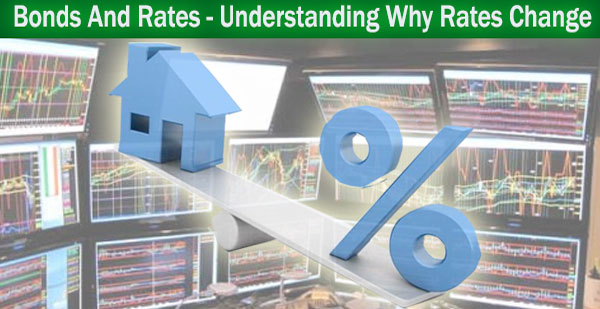
Have you ever wondered why mortgage interest rates often change rapidly? Has there been a time when you visited a lender’s website to view an interest rate then later called that company and the actual rate is lower? Or higher? Why do lenders change their rates all the time, why can’t they just issue an interest rate for a while and sit on it for about a week or two? Good questions, all. Here’s why:
First, lenders can change rates because they want to stay competitive. That makes sense, but what you may not know is that lenders set their interest rates on the very same set of indices. These indices are monitored throughout the day by mortgage companies and adjust if the index moves too far one way or the other.
Let’s take a look at a common 30 year fixed rate for a conforming loan amount. The related index is a mortgage-backed security. It’s a bond. The corresponding index for a 30 year loan is listed as FNMA30-yr 3.0. There’s no need to go too much further regarding the name of the index but understanding how bonds work, you can understand how rates move.
Bonds provide investors a fixed rate of return. Unlike a stock, an investor knows what the bond will return and when. Bonds provide much lower returns than stocks or mutual funds but they’re also a safe bet. In volatile times when stocks are taking a beating investors pull money out of stocks and into the safety of bonds, at least until Wall Street turbulence subsides. This shifting of funds can result in more competition for bonds, which can result in lower rates and yields. When more investors compete for the same bond, the price goes up, just like any other commodity but when the price of a bond goes up, the yield actually goes down. The yield is the rate of return. In short, when times look gloomy, the price of bonds goes up and when things are rosy, the price of bonds go down (less demand). Yield (or Rate) move in the opposite direction of the price.
Volatility in financial markets results in corresponding mortgage rate volatility, which is why rates can change so much. Mortgage rates are basically just a reflection of current markets. So never assume rates will stay the same or only move slowly. The mortgage rate market can be just as unpredictable as the financial markets we hear about.